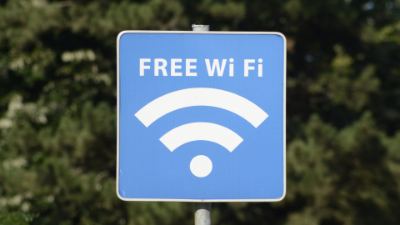In our fast-paced digital world, staying connected is crucial. Public Wi-Fi hotspots, found in cafes, airports, hotels, and even public parks, offer convenient access to the internet. While they are a lifesaver for many, from business travellers to casual surfers, they come with hidden risks that can jeopardise your personal information and digital security.
The Appeal of Public Wi-Fi
Public Wi-Fi is ubiquitous and often free, making it an attractive option for accessing the internet on the go. Whether you need to check your emails, update your social media, or catch up on work, public Wi-Fi provides an easy solution. However, this convenience comes with a price - potentially exposing your personal data to cybercriminals.
The Hidden Risks
- Unsecured Networks: Many public Wi-Fi networks lack proper encryption, meaning the data you send and receive can be easily intercepted. This makes it easy for hackers to access sensitive information such as login credentials, financial data, and personal communications.
- Man-in-the-Middle Attacks: In these attacks, cybercriminals position themselves between you and the internet connection, intercepting and potentially altering your data. This can lead to stolen passwords, personal information, and even identity theft.
- Malware Distribution: Hackers can use unsecured public Wi-Fi to distribute malware. This malicious software can infect your device, leading to data breaches, financial loss, and compromised security.
- Rogue Hotspots: These are fake Wi-Fi networks set up by hackers to trick users into connecting. Once connected, the hacker can monitor your online activity and steal sensitive information.
- Session Hijacking: If you log into a website while on public Wi-Fi, an attacker could hijack your session, giving them access to your account without needing your password.
Best Practices for Safe Public Wi-Fi Use
While the risks are real, you don't have to completely avoid public Wi-Fi. Instead, follow these best practices to protect yourself:
- Use a VPN: A Virtual Private Network (VPN) encrypts your internet connection, making it much harder for hackers to intercept your data. This is one of the most effective ways to secure your online activity on public Wi-Fi.
- Enable Two-Factor Authentication (2FA): Adding an extra layer of security to your accounts can protect you even if your password is compromised. 2FA requires a second form of verification, such as a text message code, making it more difficult for hackers to gain access.
- Avoid Sensitive Transactions: Refrain from conducting sensitive transactions, such as online banking or shopping, while on public Wi-Fi. Save these activities for when you're on a secure, private network.
- Forget the Network: After using a public Wi-Fi network, forget it on your device. This prevents your device from automatically reconnecting in the future, which could expose you to potential risks.
- Keep Software Updated: Ensure your operating system, antivirus software, and applications are up to date. Updates often include security patches that protect against vulnerabilities.
- Verify the Network: If you're in a cafe or other public place, verify the Wi-Fi network name with a staff member. This helps you avoid connecting to rogue hotspots.
Public Wi-Fi can be a convenient tool, but it's essential to be aware of the hidden risks and take steps to protect yourself. By following these best practices, you can enjoy the benefits of staying connected on the go without compromising your security.
Shop our range of Laptop Plus replacement batteries and adapters and laptop accessories here: https://laptopplus.com.au/


